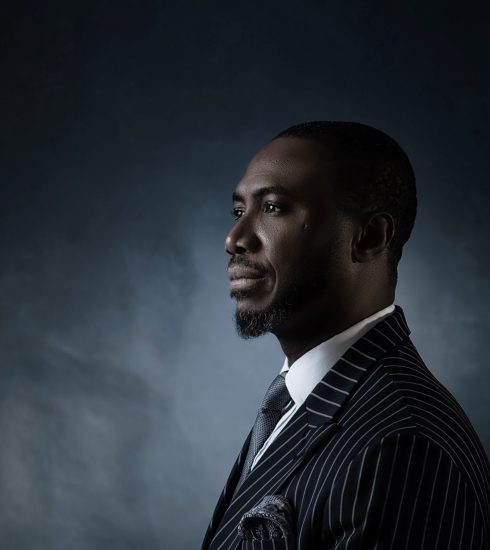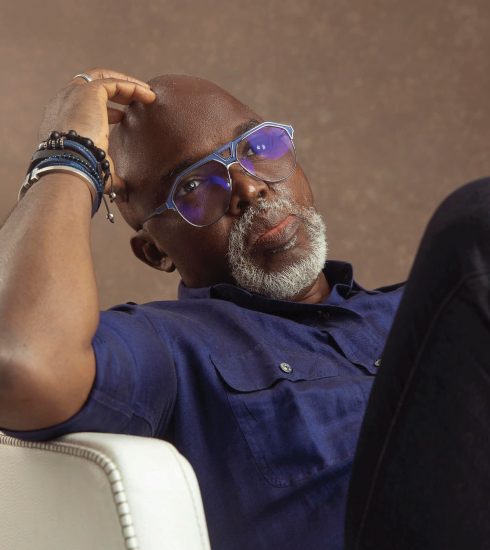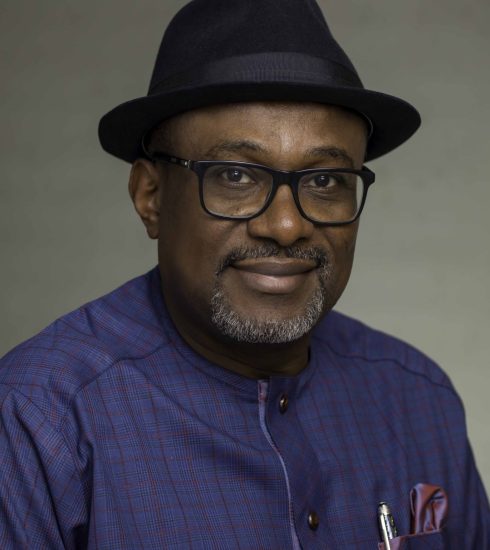In The Spotlight With Timini Egbuson
In the ever-entertaining Nigerian movie industry, Nollywood has been blessed with many talented actors, actresses, directors, producers, screenwriters, and crew members.
These talented individuals help tell the story of millions of people who can’t tell the stories themselves.
Among the notable, skilled, and gifted actors in Nollywood, Timini Egbuson has made a name for himself and has proven worthy of being among the notable names in Nollywood.
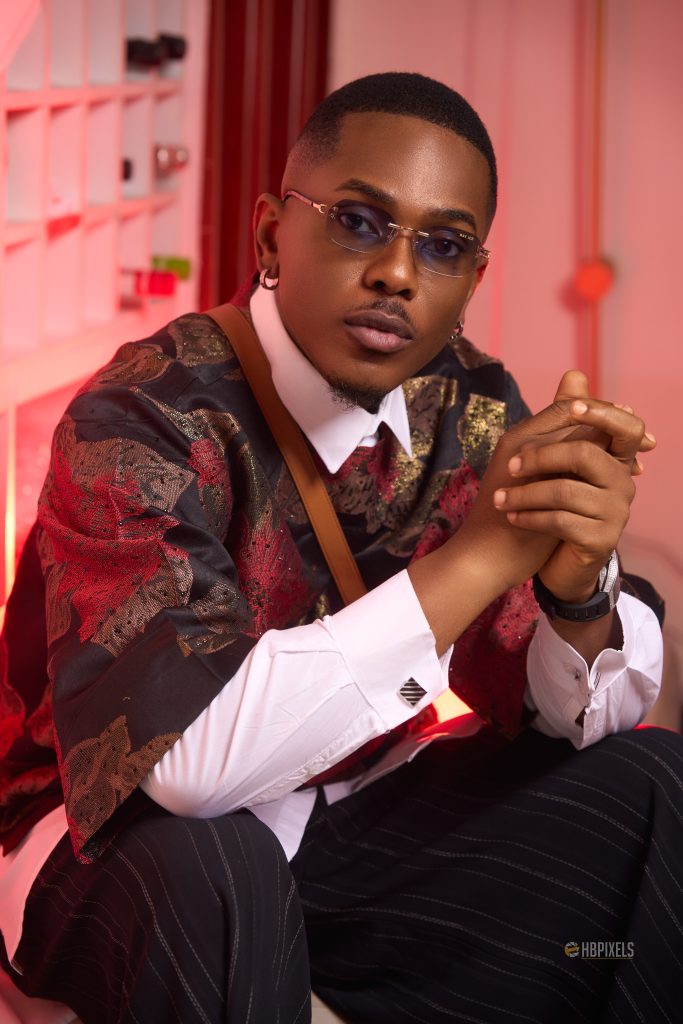 Born in Bayelsa, Timini took to acting in his early 20s. He captivates audiences with his natural ability to portray diverse characters and breathes life into every role he undertakes. Over the years, he has become an actor known for giving excellent performances that garner attention and leave a lasting impression.
Born in Bayelsa, Timini took to acting in his early 20s. He captivates audiences with his natural ability to portray diverse characters and breathes life into every role he undertakes. Over the years, he has become an actor known for giving excellent performances that garner attention and leave a lasting impression.
With an impressive body of work that spans movies and series, Timini continues to push boundaries and challenge the status quo, earning accolades and acclaim from critics and audiences alike.
In this exclusive interview, Timini Egbuson speaks with THEWILL DOWNTOWN’s Johnson Chukwueke about his cinematic career, its ups and downs, and record-breaking projects.
What was your first significant break or opportunity in the acting world, and how did it shape your journey?
It would be MTV’s Shuga. Yeah, that would be it. I joined the cast of MTV’s Shuga as Toby because that’s what put me in contact with most of the industry’s players. The longevity that came with that—I think I was in 6 or 7 seasons of that—stamped me as a permanent force in the industry over the course of 6 or 7 years.
What’s one memorable audition from the early days of your career? How did you prepare, and what emotions were running through you at that time?
Okay, before I got my first big break, I used to go for a whole lot of auditions, and at that point in time, it was just like a hobby. I wasn’t even sure I had what it takes to be an actor. But when I went for the Tinsel auditions, you know, when Tinsel announced its auditions, there were thousands of people, and it was one of the biggest breaks that an actor could ask for. So when I got there, I remember I was asked to dance and sing, and the audition normally lasted 3 minutes for the average person, but I ended up staying in there for like 15 minutes, and after that, I got a callback, and I was picked to be a cast in Tinsel. So yeah, that was a really big break for me, even though it didn’t end up being a major role, but the fact that I had what it took among a multitude of people, I was selected and given a chance, that fueled my desire and thirst to do better and be better.
Now, starting in any industry comes with challenges, that’s a given. What were some challenges you faced at the beginning of your acting career, and how did you overcome them?
I feel like challenges are a part of every step of an actor’s or even a human being’s process, but starting out, I would say that the fact that I was given the role of somebody’s brother or someone’s son, you know, just being a family member, those supporting roles were my challenges because at that time, people weren’t really writing stories that were centred around a young male lead.
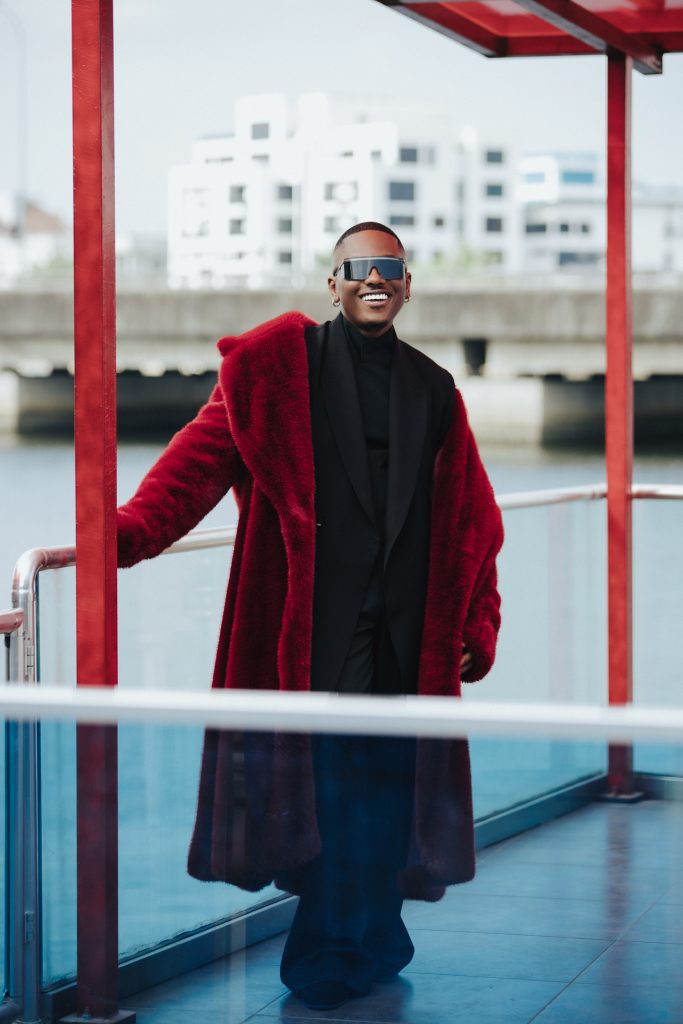
What about the most challenging role you’ve portrayed? What was it, and how did you make it work?
At the end of the day, most of my roles were challenging in one way or another; I can’t say anyone was the most challenging because that would be doing a disservice to the other roles that I have played. But what I would like to shed light on in terms of difficulty level would be my role in the movie Breaded Life. That role was challenging because of the fact that I had to play a child from two different backgrounds. The way the story was structured, I had to play a really rich, spoilt kid and also play an alternate character who was a poor guy abandoned by his family and had to live in the ghetto. So, the emotional rollercoaster I had to go back and forth from was a bit challenging. Also, putting myself into the reality of the boy who was abandoned by his family and no one else remembered him, he was basically going through the bottom. It was a bit tough for me, especially realising that’s a lot of people’s realities. It made me realise my privilege and thank God for where I am today cause, at some point in time, I had gone through that struggle.
Did you have any mentors or influential figures who guided you in the early stages of your career? How did their advice impact your development as an actor?
My biggest mentor has always been my sister, Dakore Egbuson-Akande. She has not only guided me in the past, but I am still getting her guidance even now, and I don’t think I am going to stop getting her guidance anytime soon. RMD(Richard Mofe Damijo) as well is also a huge mentor. There are a bunch of other people like Ramsey Noah and Jim Iyke those are people I have always looked at the trajectory of their careers and admired how they have been able to gracefully stay relevant and gracefully give their best to the industry and also help the industry grow. Also, mentors in my age bracket are Burna Boy, Wizkid, and Davido. I love how they have taken their industry to another level and brought a lot of global recognition, which is where I kinda feel like is the next level Nollywood needs to be. Music and movies go hand in hand, so I feel like the actors, actresses, producers, and directors have put in so much to grow the industry, so the next level is to take these talents overseas and make Nollywood a bigger global export that it should be.
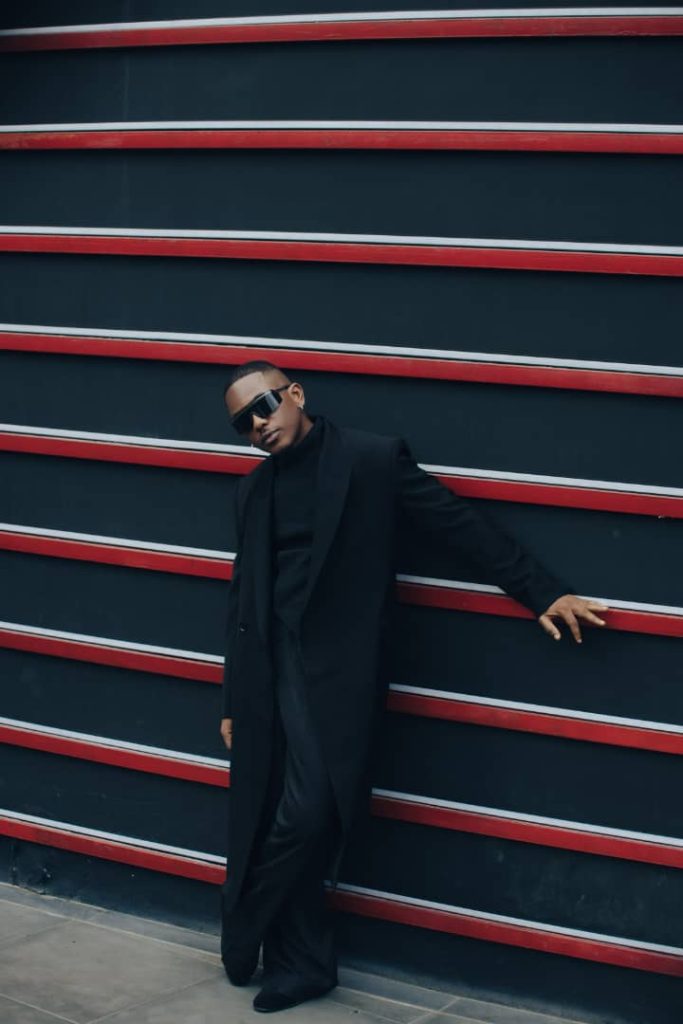
What was it like growing up and having your sister as a popular actress already? How did that inspire you to go into acting?
I grew up in a very entertainment-based family, musically, dance, acting, you know, the whole performance-inclined family. We would wake up to loud music in the house, everybody vibing, so we have always had that in the house. So Dakore going into acting and being successful only just gave me the hope and assurance that it’s something I could do since we are cut from the same cloth. Also, it was really nice to have her guide me and show me the dos and don’ts in the industry, considering that she went through entry-level and rose to superstardom. It’s not like we had any godfathers or any grand supporters in the industry, so I always knew that if she could do it, I could do it, and that has helped me through the beginning stages of my career.
What movies do you guys have together? Are we ever going to witness the star siblings on any project together?
Yes. There’s Isoken, there is Fifty, the movie, there is also Fifty, the series. We also have one we just finished wrapping up last month, although I don’t know if I am at liberty to announce it, all I can tell you is that it’s a star-studded series and it has the Egbusons starring in it, most likely to be out this year.
What were some major learning experiences or lessons you gained during the early years of your career? How did these shape your approach to acting?
I have learned a few lessons. One of the few that I would highlight is the fact that being able to play different characters and doing research as to the hows and the whys of the decisions my characters make has helped me to be less judgemental as a person and has made me more accommodative of people’s differences and peoples good and bad side. At the end of the day, we have a bad story that the world doesn’t get to see. It has also helped me become a kinder person cause many people are going through different things. Yeah, the characters I play are fictional, but still, it helps me realise that many people are going through many things that other people around them can’t see.
How did you prepare for yourself when given a particular character to portray? Surely, you have your way of visualising what that character is like and bringing it to life.
Research and more research, that’s it for me. I do as much research as possible, and I study and get as much knowledge as I can. There’s something called the “Character Bible” that most scripts would have, so I go through that and try to understand who it is that I am portraying. If it’s something I have experienced or I know someone who has experienced it, I tap into the minds of those people who have been in their shoes. Another important thing is trusting your director. Once you guys can paint a picture of what your character is meant to be before getting on set, then when you get on set, the movie makes itself.
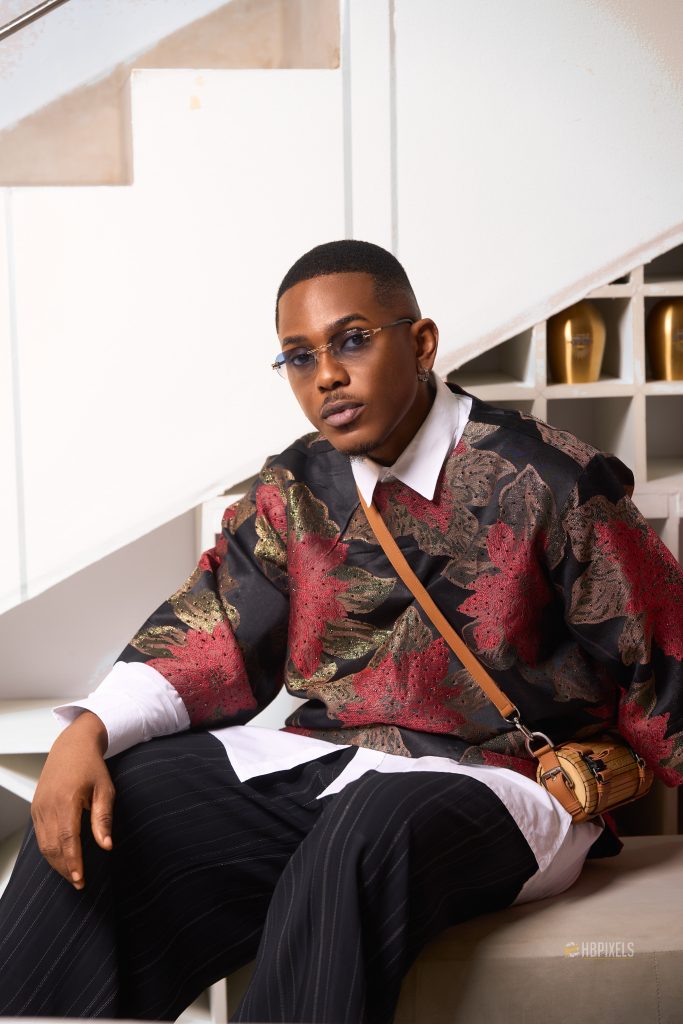
Auditioning is a significant part of an actor’s life. How did you handle rejection in the early stages, and what kept you motivated to continue pursuing your dream?
Rejection is part of the process as an actor. At some point in time, you might feel like you are right for a role, but the director’s vision for the producers might not really see you being in it, and it’s something you have to understand that you can’t be in every movie, and at the end of the day, you just have to keep moving forward. I have been blessed to have a career that has had a high level of consistency. There hasn’t really been a time that I was out of work, so I bless God for that. So what I do is that I focus on the positives cause there’s always something to be thankful for, and I pray that it remains so till I am old and grey.
How have you seen your approach to acting evolve from the beginning of your career to the present? Are there specific ways you get to make sure you can get any facial expressions right there on the spot?
That’s the secret you are asking for. But at the end of the day, as an actor and with the years of experience that you have amassed, it is something that comes naturally to you. I am more natural as an actor; I like to allow things to come to me in the moment when I put myself in the situation that the character is supposed to be in. I have done the training and the self-work in the past, I just become the character. As long you can put yourself in the state of mind of the character, then you can portray the character with ease.
Reflecting on your early career, what would you consider one of your most significant milestones or achievements? How did it impact your trajectory in the industry?
I have worked on different things and massive projects, most recently A Tribe Called Judah, which has become the most successful film out of Africa. That is a great one. Also being nominated and winning the AMVCA award for Best Actor for my role in Elevator Baby. In the next edition, I was nominated for two categories: Best Actor in a Drama and Best Actor in a Comedy. So those are the kinds of things I look back to, and I smile cause even though I was having any kind of impostor syndrome in the beginning, that kind of gives me the assurance that I am doing something right. I won the first Future Awards, which was also important to me because it wasn’t a voting category and wasn’t gender-based. I just look back at it and smile.
Being a celebrity, it’s like everything you do is criticised, and there’s a negative side; how do you deal with criticisms and controversies?
To be honest, being a human being, everything that you do is talked about and criticised on a level. It’s just that being a celebrity is almost microscopic because more people have eyes on you. I deal with it by focusing on the positives; not everyone would agree with you, regardless of what it is. I have come to understand that as long as the people who love me and support me continue to do so, then it’s fine, that’s what I like to focus on, the positive side of things, not dwelling on negatives, everyone has their opinion and it’s okay.
Now, let’s talk about the latest achievement. Can you tell us about your experience working on a Tribe called Judah?
My experience was fantastic; it was family-oriented. We sat together, we were happy together, and we all knew everything was a masterpiece just from reading the script. The funny thing is that I went to a festival in New Orleans, and I almost missed out on an opportunity to be a part of the film, but thank God and my ancestors and my angels, I was able to return early enough. I give a big shout-out, and I am grateful to Funke Akindele, who gave me the opportunity and that role gave me a nomination in this year’s AMVCA awards.
How does it feel to be nominated in the Best Supporting Actor Category for your performance in A Tribe Called Judah?
It feels great. I was nominated along with lots of fantastic actors. The recognition alone is a win for all of us, and at the end of the day, it just gives me the motivation to keep going higher and keep doing better. It’s nice to feel seen, and it’s nice to see that your contributions are being acknowledged, so yeah, that’s about it.
Did you expect A Tribe Called Judah movie to receive such critical acclaim and even an award nomination for Best Supporting Actor?
I expected it, I manifested it, we worked towards it in terms of marketing and promotions, and we also prayed. We already knew Funke Akindele broke her own movie records, and we knew this film was special just from reading the script and understanding how action-packed and emotional it was, we already knew there was no way Africa and the rest of the world would not appreciate the work that we put in. A quarter of the work was done by the story, the other quarter was done by the casting cause Funke Akindele cast perfectly for different roles, and the rest was God’s Grace and the hard work we put into performing and promoting the movies.
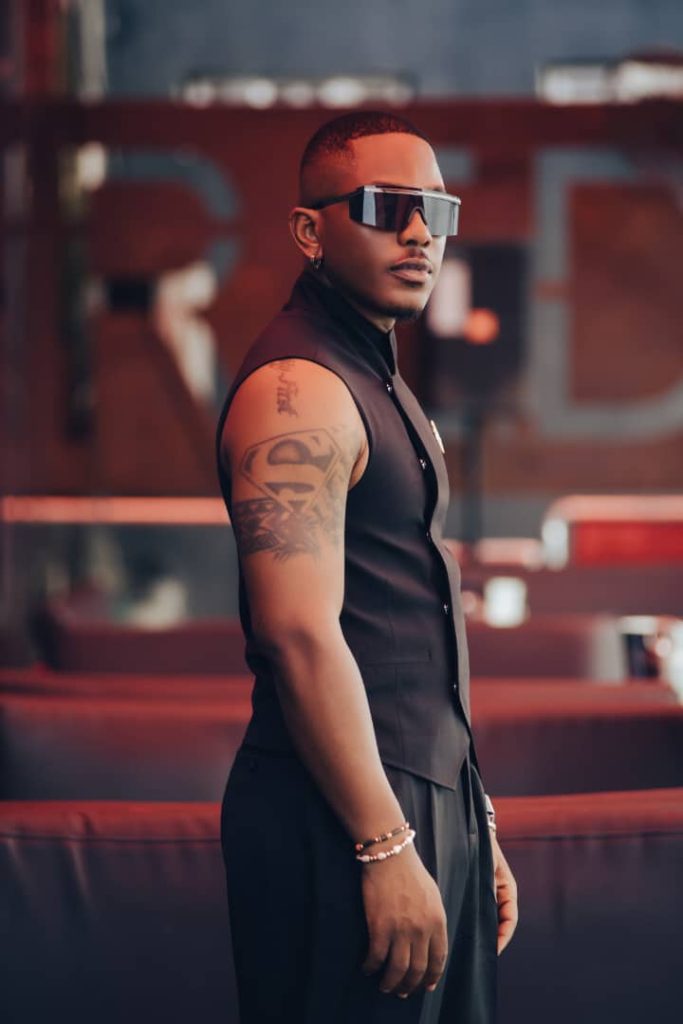
How does this nomination of Best Supporting Actor compare to previous nominations and wins you’ve received?
Every department is vital, and every nomination is important. It was really nice to be nominated for this role. It’s as important as every other nomination and win that I have gotten; I am happy I got it, and my role was acknowledged.
In what ways do you think your background and experiences influenced your portrayal of the character?
I wouldn’t say any personal experience could relate to the fact that my character was a kleptomaniac, but the characters being so close to their mom and the bond that they shared was likened to the relationship I and my siblings have with my mum. Also, the part where they lived, struggled, and operated from the trenches took me back to a part of my life where I lived in Ojuelegba, so I could relate to a lot of things like the mannerisms and behaviors that my siblings in the movie went through.
What advice would you give those aspiring to follow in your footsteps as they embark on their own journeys in the filmmaking world?
I would say work hard, work on yourself, believe in yourself, and don’t take rejection to heart.
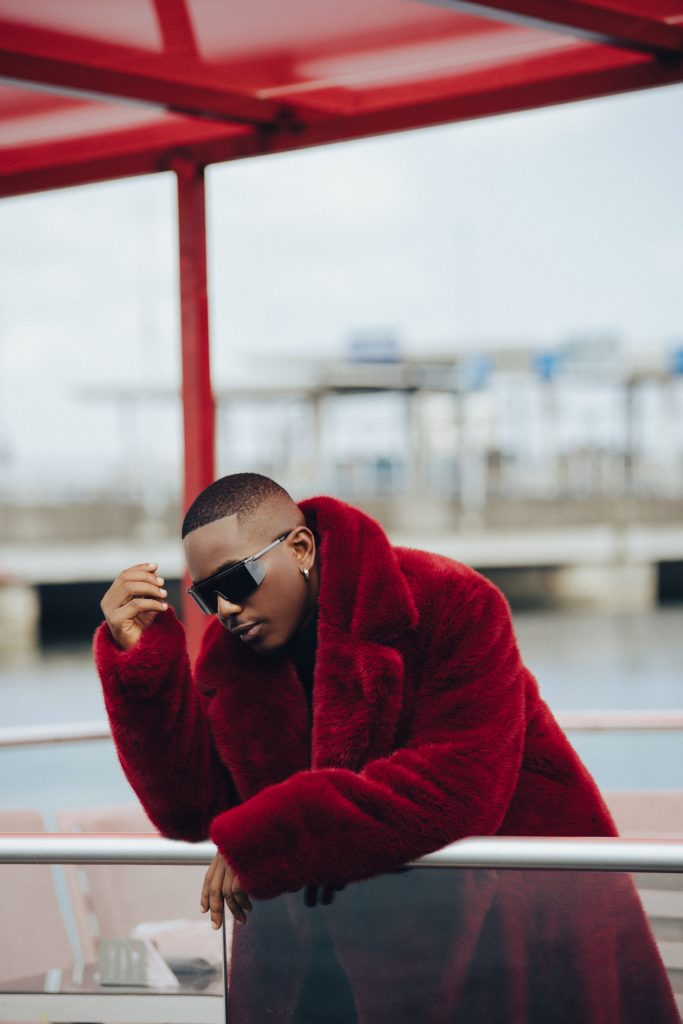
How about unforgettable moments? Are there any moments from the early days of your career or even present times that still stand out as particularly unforgettable or defining for you as an actor?
A time that stood out for me was when the Best Actor award for my role in Elevator Baby was presented to me by my sister and mentor Dakore; that was a very special moment for me.
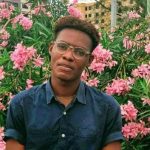
Johnson Chukwueke
Johnson Chukwueke is a content and creative writer with over 3 years of experience as a professional. A microbiology graduate from the Imo State University, Johnson is a music enthusiast who also enjoys movies, reading, and swimming. He is a writer at THEWILL DOWNTOWN.




